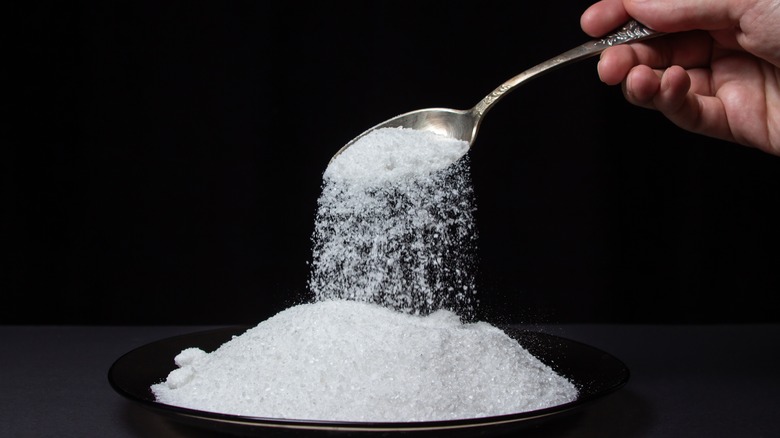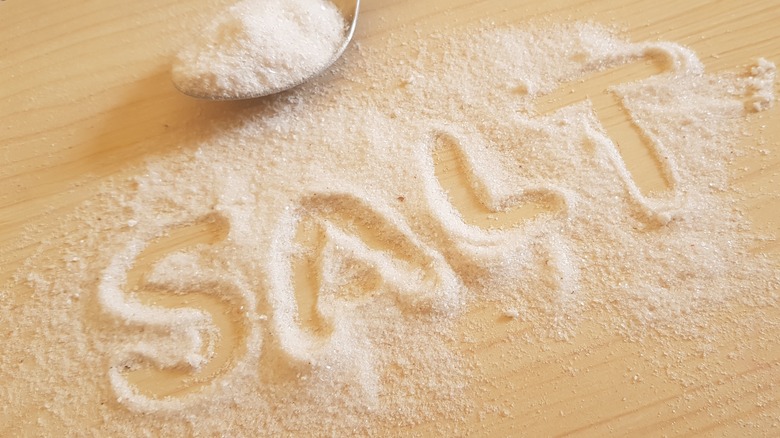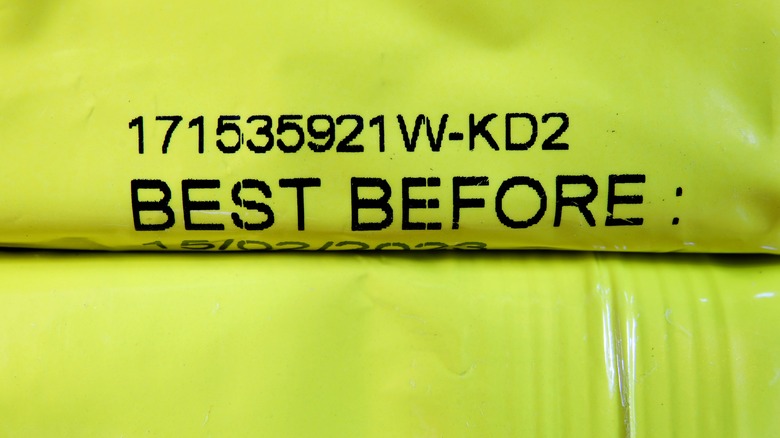The Science Behind Salt's Non-Existent Expiration Date
However sparse or overstocked your pantry is right now, we can almost guarantee it has salt. The ingredient is essential to every cuisine in the world, save for that of the Yanomamo tribe of Brazil and Venezuela, according to the National Library of Medicine. As Samin Nosrat stresses in her seminal cookbook "Salt, Fat, Acid, Heat," salt has "a greater impact on flavor than any other ingredient." Over-salting is definitely a thing, but more often than not, dishes that lack a certain je ne sais quoi are simply in need of more salt.
The powerful flavor-enhancing and food-preserving properties of salt are by no means a recent discovery. TIME says people have been cooking with the stuff for over 5,000 years, and that it was used for other purposes for two millenniums before that, thanks to worn animal paths that led humans to salt licks. Over time, the commodity grew ever more treasured. According to the outlet, sixth-century Moorish merchants in the sub-Sahara actually traded salt for gold.
Today, global salt production exceeds 290 million tons each year, per Statista, with China accounting for over 62 million of them. Every natural resource is precious, but it's safe to say there's plenty of salt to go around. Still, there's absolutely no need to replace the Morton's that's been sitting in your kitchen cabinet for two years.
No water, no problem
If you're not sure whether to believe the "best by" date on your box of salt, consider this a sign to keep it in your pantry. Reader's Digest contributor Awanthi Vardaraj explains that the ingredient's lack of water renders it immune to the spoilage that occurs with other foodstuffs. What's more, Vardaraj says salt is a natural microbe repellent that causes bacteria to go into "osmotic shock." Mold is formed from excess moisture, so salt's ability to kill cells that contain water allows it to stay mold-free for literal ages.
If you're still unconvinced of how long salt lasts, just look at the Salzkammergut salt district, which plays host to active salt mines in the alp region of Austria that have been in use since the Neolithic Age. Because of salt's preserving powers, ancient artifacts like shoes and cloth have been uncovered in the area in near-perfect condition.
The fine print
Old salt won't make you sick, but keep in mind that salt with certain flavorings and additives can lose its potency past its "best-by" date. Morton Salt says that its plain table salt, sea salt (coarse, fine, and regular), salt that comes in a grinder, and kosher salt shouldn't extend a five-year lease in your pantry. Per the brand, the "anti-caking additives" like sodium aluminosilicate, silicon dioxide, and magnesium carbonate in these kinds of salt products can stop working after five years, which is when you'll start to notice some clumps in your salt.
By comparison, Morton's "Nature's Seasons" and garlic salt will lose their flavor after three years. The same goes for its "Season-All" salt and its meat-curing "Tender Quick" salt. With that said, the aforementioned five-year salts will still fare just fine in your cooking after their prime, so long as you're willing to break up the clumps. To keep your salt as fresh as possible, Lifehacker recommends storing it in an airtight container and a "dark, cool place."


